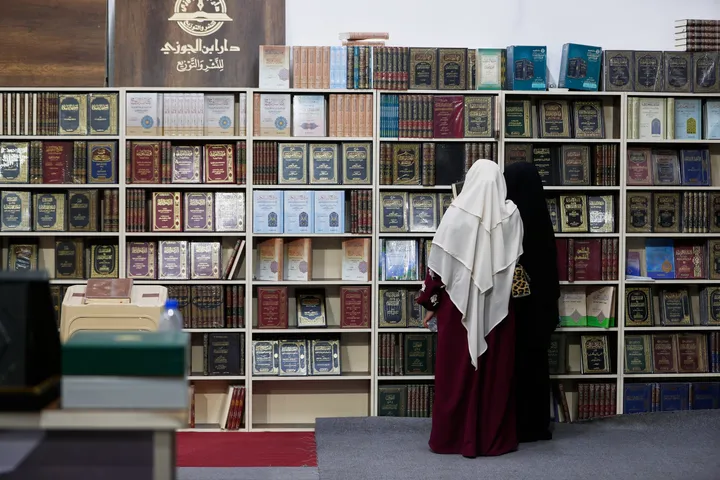Many Republican lawmakers were quick to lash out at Ilhan Omar, a Democrat congresswoman from Minnesota, for questioning some of her colleagues on their "dual loyalty," a reference to those lawmakers who aggressively champion Zionist causes while having vowed to serve American interests.
The first female Muslim lawmaker at the US House of Representatives, Omar's remarks left many lawmakers from both Republican and Democratic parties viciously infuriated. The response was so vile that Republicans in the West Virginia Legislature put up a Islamophobic poster to draw parallels between Omar and the 9/11 hijackers.
Omar's remarks were not directed toward any individual or religion. While addressing an audience in Washington on February 27, she said she wanted to "talk about the political influence in this country that says it is OK to push for allegiance to a foreign country.”
Since Omar had already stirred controversy with a tweet that touched upon Zionist lobbies buying influence in American politics, last week's comment on lawmaker's loyalty toward America triggered another storm.
“You’d better not talk about how policy toward Israel is made and maintained. Because if you do, this is what you’re going to get,” wrote Paul Waldman, a Jewish American writer, who criticised both Democratic and Republican parties for stifling Omar's freedom to express her opinions and also blocking any valid criticism on how the US policy toward Israel is drafted despite the Zionist state occupying most of Palestine and causing immense human suffering to Palestinians.
The House leadership put huge pressure on Omar to apologise for her “dual loyalty” comment, which they labeled as anti-Semitic while she did not identify Jewishness in her speech.
But indeed, Omar was referring to both Republicans and Democrats under financial and political sponsorship of pro-Israeli Zionist lobbying such as the influential AIPAC.
Omar not talking about Jews
“Ilhan Omar certainly didn’t say that Jews have dual loyalty … You’ll notice she didn’t say or even imply anything at all about Jews,” Waldman, who “was raised in an intensely Zionist family with a long history of devotion and sacrifice for Israel,” wrote in his article.
“She said that she was being asked to support Israel in order to have the privilege of serving on the House Foreign Affairs Committee, which was true. Many on the right have called for her to be removed from that committee (see here, or here, or here, or here). Her argument, to repeat, isn’t about how Jews feel about Israel, it’s about what is being demanded of her.”
Waldman also pointed out an “ultimate irony” saying that “Dual loyalty is precisely what AIPAC demands, and what it gets. Again, it makes this demand not of Jews, but of every member of Congress, and even of politicians at the state level whom you wouldn’t think would be conducting foreign policy. And it is working.”
At the end, against all odds, Omar did not back off, but solidifed her position further.
“I should not be expected to have allegiance/pledge support to a foreign country in order to serve my country in Congress or serve on committee,” she wrote on Twitter on March 3.
Angered by Omar’s defiant stance, the House establishment demanded to enact a resolution, which would condemn anti-Semitism, implying Omar’s comments served as the impetus.
But in the face of powerful resistance from Omar, who has also been firmly backed by the party’s rising progressive left wing and black caucus for her stance, the House’s newly elected Democrat majority chose to find a middle ground both to calm the resentment of pro-Israeli House establishment and not to alienate its dynamic leftists.
Changing political winds in Washington
The ultimate political output was a House resolution, which has condemned not only anti-Semitism but also Islamophobia alongside all kinds of other hate-driven ideologies and political affiliations.
The resolution did not make any reference to Omar, according to the House Speaker Nancy Pelosi, who occupies one of the most powerful political positions in Washington.
“It’s not about her; it’s about these forms of hatred,” Pelosi said, frustrating pro-Israeli American lawmakers and their allies.
“If Pelosi can’t muster a powerful and unequivocal resolution condemning anti-Semitism, then Omar will have secured her political future and won a critical battle for the soul of the Democratic Party,” wrote Bret Stephens, a conservative Jewish American columnist who dedicated his recent column on Omar’s politics.
“At that point, the days when American Jews can live comfortably within the Democratic fold will be numbered,” Stephens said, openly worrying about the prospects of pro-Israeli politics inside the Democratic Party.
On the other hand, Omar and her allies, which voted for the resolution, making it pass in an overwhelming fashion, were in a jubilant mood.
“Today is historic on many fronts. It’s the first time we have voted on a resolution condemning anti-Muslim bigotry in our nation’s history,” said a joint statement from Omar, Rashida Tlaib, and Andre Carson, who are two other Muslim lawmakers, saying they were tremendously “proud” to be part of the American Congress.
The joint statement also expressed its understanding of the sensitivity of the current debate. “Our nation is having a difficult conversation and we believe this is great progress,” the statement said.
But the debate itself makes pro-Israeli American elites nervous and unhappy.
“Yet merely by refusing to fold, Omar stands to shift the range of acceptable discussion — the so-called Overton window — sharply in her direction. Ideas once thought of as intellectually uncouth and morally repulsive have suddenly become merely controversial. It’s how anti-Zionism has abruptly become an acceptable point of view in reputable circles,” Stephens said in his last article in The New York Times.
However, like Waldman, not all American Jews agree with Stephens and the House’s other pro-Israeli lawmakers.
“What you oppose is criticism of Israel. That’s the real reason Republicans are so much more outraged by Omar’s tweets than by Trump’s. They’re not trying to police bigotry or even anti-Semitism,” wrote Peter Beinart, who is a senior columnist at The Forward, one of the oldest Jewish leftist magazines and a professor of journalism and political science at the City University of New York.
“They’re using anti-Semitism to police the American debate about Israel,” Beinart concluded.























